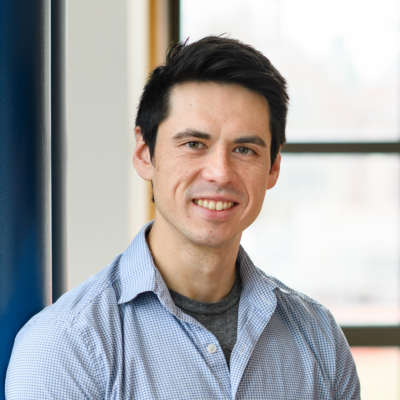Uniting computer science, statistics, and social science to solve real-life problems through mass collaboration on path-breaking transparent research in partnership with industry, government, and civil society.
Research
Designing and running innovative, large-scale experiments to pursue replicable, generalizable, scalable, and ultimately useful social science.
Building technology to detect patterns of bias and misinformation in media from across the political spectrum and spanning television, radio, social media, and the broader web.
Using cutting-edge statistical techniques to analyze police-civilian interactions, measure racial bias in policing, evaluate policing policy reforms, and improve the performance of policing agencies.
Using mobility and demographic data to train epidemiological models designed to predict the impact of policies around reopening and vaccination.

The Computational Social Science Lab was created in March 2021 as a joint venture of the School of Engineering and Applied Science, the Annenberg School for Communication, and the Wharton School. We seek novel, replicable insights into societally relevant problems by applying computational methods to large-scale data. Through our research infrastructure, industry partnerships, and network of collaborators, we also aim to facilitate progress in computational social science more generally.
In the News
Nudge Cartography: Building a map to navigate behavioral research
Ph.D. candidate Linnea Gandhi of the Wharton School and research assistant Anoushka Kiyawat discuss the development of their team’s innovative research tool.
Don’t be too quick to blame social media for America’s polarization
Studies of online echo chambers don’t paint the full picture of Americans’ political segregation. New research shows that the problem is more Fox News and MSNBC than Facebook and Twitter.
Wharton Research Helps ACLU Win Fourth Amendment Case
The ACLU of Kansas is crediting research from experts at Wharton and Princeton with helping to win its federal court case against the Kansas Highway Patrol (KHP) over unconstitutional treatment of out-of-state drivers.
The Data Will Save Us
Or at least, that’s the hope of Wharton professor Duncan Watts, whose new initiative, the Penn Media Accountability Project, aims to expose bias in journalism by building a huge database of news for researchers and journalism watchdogs to analyze.
The Team
Computational Social Science for Business encompasses two collaborative research teams with shared interests and interrelated research agendas, lead by Professors Duncan Watts and Dean Knox.
Faculty

Duncan Watts
Stevens University Professor & twenty-third Penn Integrates Knowledge Professor

Dean Knox
Assistant Professor
Operations, Information and Decisions
Administrative Staff
Jeanne Ruane
Managing Director
Rachel Mariman
Director, Data Computing and Research Support
Delphine Gardiner
Senior Communications Specialist
Eric Shapiro
Research Operations Manager
Haosen Ge
Data Scientist
Miguel Rivera-Lanas
Data Scientist
Yashveer Singh Sohi
Data Scientist
Yuxuan Zhang
Data Scientist
Research Staff
Homa Hosseinmardi
Associate Research Scientist
Mark Whiting
Senior Computational Social Scientist
Jorge Barreras Cortes
Postdoctoral Researcher
James Houghton
Postdoctoral Researcher
Amir Tohidi
Postdoctoral Researcher


